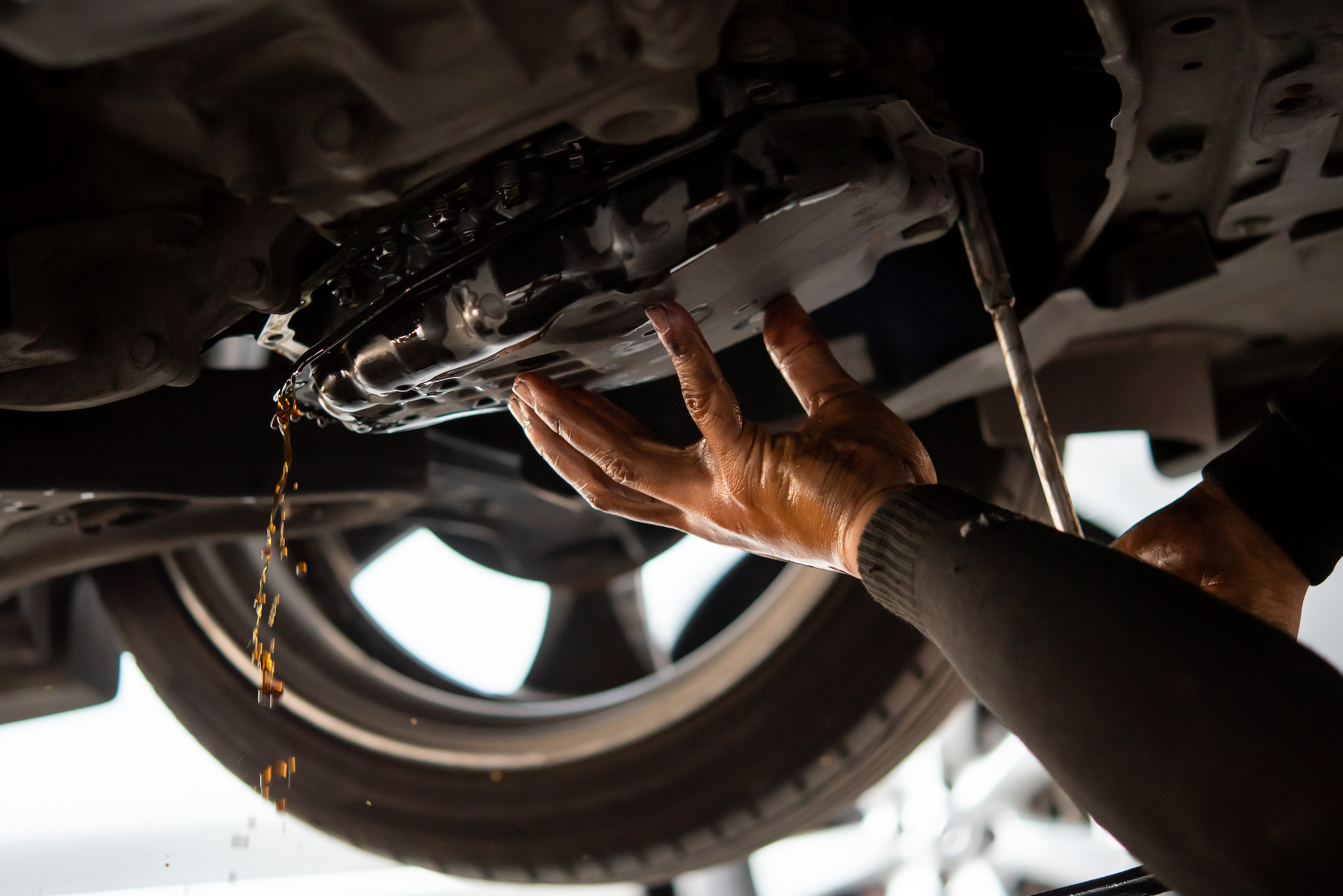In our February 2022 blog post, entitled “The Importance of Transmission Fluid” we stressed why it is critical to keep your vehicle’s automatic transmission fluid clean. Periodic maintenance of your fluid will keep your vehicle running smoothly and efficiently. But there are times when despite the best effort to maintain the fluid, your vehicle may experience a transmission fluid leak. In this month’s blog, we examine the problems that may cause your transmission fluid to leak and ways to keep on top of this before it becomes a serious problem.
What is transmission fluid?
As a refresher, automatic transmission fluid is a type of oil designed from crude oil that flows through your automatic transmission. This fluid provides important lubrication to gears and parts, cooling, and temperature regulation, and can pick up dirt from within the system.
A vehicle transmission can hold a significant quantity of transmission fluid – the average vehicle holds about 12 quarts. Some larger make and model vehicles may hold up to 30+ quarts. These amounts are important because if your vehicle has a small leak, it can diminish the supply over time and cause issues for your transmission. If your vehicle has a large leak, you are most likely to know about it right away.
What causes transmission fluid to leak?
Your vehicle’s transmission is one of the hardest working components of your vehicle and so that makes it susceptible to wear, tear, and other hazardous elements of the road.
The more common reasons that your vehicle may leak transmission fluid, include:
- You have a crack in the fluid line: The lines that carry the transmission fluid throughout your system are designed to be strong – made of steel or aluminum. However, if the line is damaged from debris on the road, or extreme heat, it could leak.
- You have worn seals: Your vehicle’s transmission is pressurized by seals. These seals can become worn or broken and cause leaks within the transmission.
- You have a damaged transmission pan: The transmission pan is what holds the transmission fluid. Sometimes flying road debris may puncture or damage the pan, causing it to leak. If the puncture is large enough, the pan will not be able to hold the fluid, and you may notice that right away after replenishing your vehicle with transmission fluid.
- You have a damaged transmission pan plug: The drain plug on your transmission pan may also become damaged or loose because of debris or other road hazards. This could result in leaking from the transmission pan.
- You have a bad transmission pan gasket: The transmission pan gasket is a thin piece of rubber that sits between the transmission housing and the pan. This prevents the leakage of fluid from the system; however, it can become worn or damaged and leak fluid. Normally, the gasket fails due to improper installation, faulty manufacturing, or temperature damage.
There are other reasons why the transmission fluid may leak but these five are the more common ones found in vehicles.
How can you prevent a transmission fluid leak?
There is no sure way to fully prevent a leak, but you can stay on top of transmission fluid maintenance and lower your chances of having an issue.
- Stay alert to any signs of transmission fluid beneath the vehicle. This is your first indication there is something not working properly.
- Periodically check your fluid levels and make sure they are accurate according to your vehicle’s specifications.
- Evaluate how clean or dirty your transmission fluid is – it should have a sweet smell with a reddish color. Dark fluid is dirty and should be changed.
- Consider doing a transmission fluid flush every 30,000 miles driven.
If you take some precautions, and stay alert to your vehicle, you have less chances that you will experience a leak. However, there are always situations that are outside of our control that can impact the transmission. If you have any concerns about the functioning of your transmission, or think you may have a possible leak, give the service professionals at Best Western Transmissions a call today to schedule an inspection.

